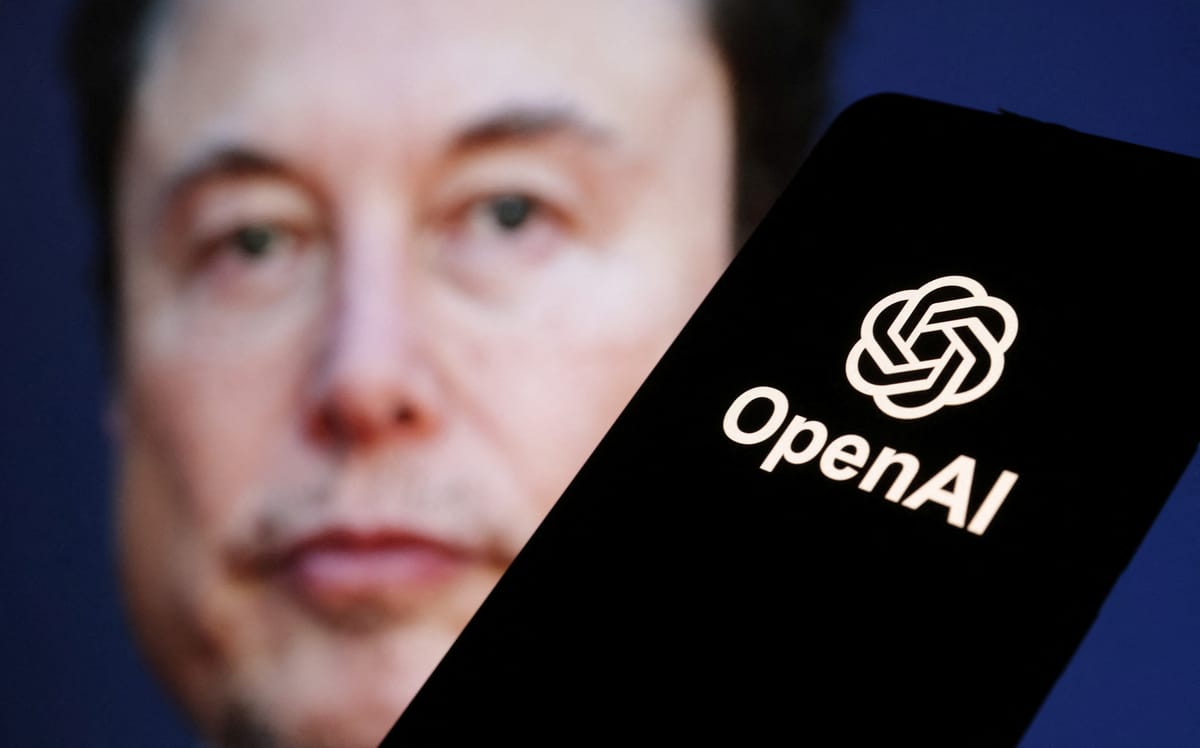OpenAI pushes back against Elon Musk, calling his claims “incoherent”
Just a few weeks back, Elon Musk sued Microsoft-backed OpenAI, along with its CEO Sam Altman and President Greg Brockman

A few minutes every morning is all you need.
Stay up to date on the world's Headlines and Human Stories. It's fun, it's factual, it's fluff-free.
The backstory: Elon Musk, known for his work with Tesla and SpaceX, has always expressed an interest in artificial intelligence (AI) but also warned to approach it with caution. Even though he helped found OpenAI in 2015, Musk distanced himself from the board in 2018 to avoid potential conflicts of interest with his other businesses. Meanwhile, in 2022, OpenAI made waves with the launch of ChatGPT, an AI chatbot that skyrocketed in popularity, drawing in 100 million users within just two months. This success attracted the interest of tech giants like Microsoft and Google, with Microsoft backing OpenAI since 2019 and reportedly investing around US$13 billion since then.
Just a few weeks back, Musk sued Microsoft-backed OpenAI, along with its CEO Sam Altman and President Greg Brockman. He argued that they had strayed from their original mission of developing AI for humanity's good. Musk claimed in the lawsuit that they initially proposed creating a non-profit AI lab in 2015, but now, OpenAI appears to prioritize profits, particularly for Microsoft, which goes against their initial agreement. Musk also urged the court to make OpenAI share its research with the public and prevent Microsoft from profiting from it.
More recently: OpenAI responded to Musk's claims in a blog post last week, sharing emails from his time at OpenAI. These emails seemingly show that Musk supported the idea of making OpenAI a for-profit venture and backing funding efforts. The blog post also pointed out a contradiction in Musk's stance on sharing OpenAI's research. OpenAI also alleged that Musk tried to integrate OpenAI into his company, Tesla.
This week, Musk's AI company xAI, which was launched last year, announced that it would allow anyone to access and test the code for Grok, its ChatGPT rival, for free.
The development: OpenAI has now officially hit back at Musk's accusations with a legal rebuttal. In a court filing, the company argued that Musk's claims are based on complicated and sometimes "incoherent" information. According to OpenAI, there was no agreement between the parties to breach. In its filing, OpenAI criticized Musk's demands as excessive and untrue, suggesting that his actions are actually driven by a desire to replicate OpenAI's success for himself, citing his past attempts to influence the organization. OpenAI also voiced worries about allowing pretrial fact-finding, fearing it could give Musk access to sensitive information and technology that might be misused. The company requested the court to categorize the case as "complex," meaning it would get a specially designated judge and keep the process carefully managed.
Key comments:
"The relief Musk seeks is as extraordinary as his claims are contrived," said OpenAI in its San Francisco state court filing. "Musk requests an order compelling OpenAI to reorganize and distribute its technology in accordance with the terms of his fictitious contract."
The lawsuit was filed "to compel OpenAI to adhere to the Founding Agreement and return to its mission to develop AGI for the benefit of humanity, not to personally benefit the individual Defendants and the largest technology company in the world," said Elon Musk's lawyers.
"We're sad that it's come to this with someone whom we've deeply admired — someone who inspired us to aim higher, then told us we would fail, started a competitor and then sued us when we started making meaningful progress towards OpenAI's mission without him," the company said in its post responding to Musk's lawsuit, which was co-authored by several of OpenAI's co-founders, including Sam Altman, Greg Brockman and Ilya Sutskever.




Comments ()